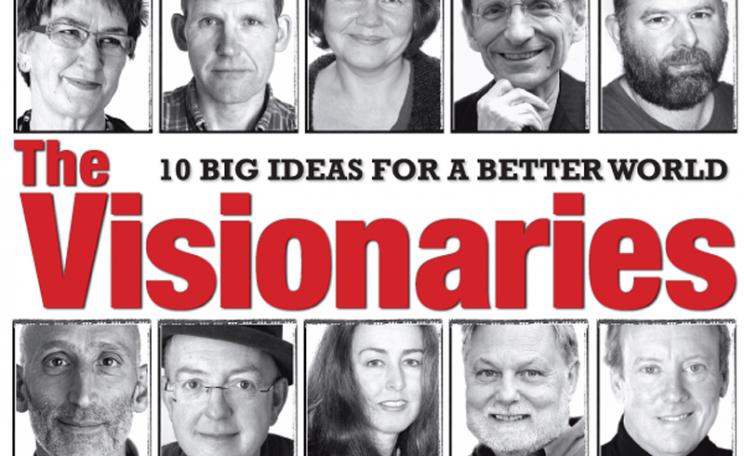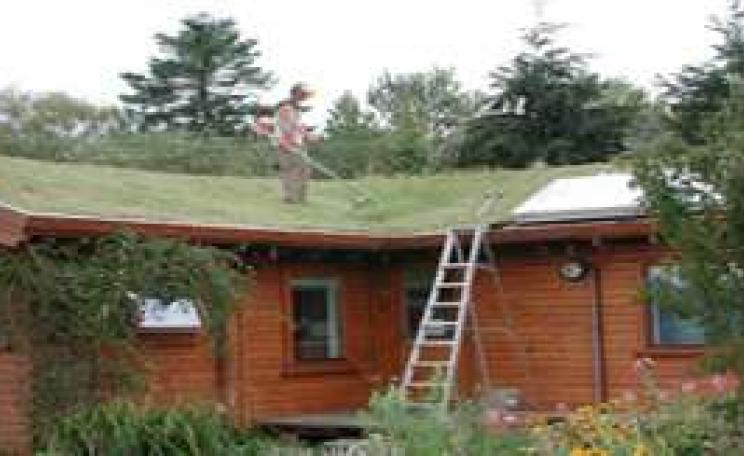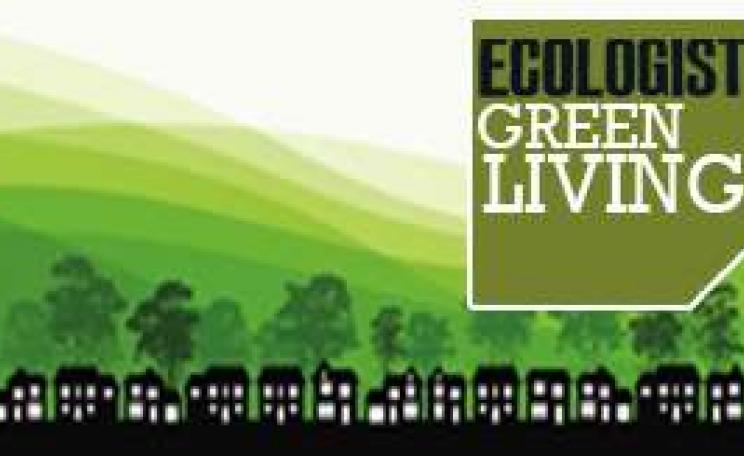A man is rich in proportion to the number of things which he can afford to let alone’ Henry David Thoreau
A growing number of people are breaking out by living their lives in a different, more involved and satisfying way. According to the report Are you Happy? by the New Economics Foundation, despite the UK economy having doubled since the 1970s, people’s satisfaction with their lives has remained stagnant. With 87 per cent of Britons believing that today’s society is too materialistic, with a lack of emphasis on the things that really matter, and the level of trust we place in others halved since the 1950s, it couldn’t be a better time to change your lifestyle.
Work from home
With more than 3.3 million people home-working, the benefits of home-based work include: the use of one property, community renaissance and diversity, reduction in commuting time, increased security of occupied homes and more time with your family. Make a start by finding out if your company has a worklife balance policy. For starting your own sustainable business, see the following websites for advice on development, funding and further links:
www.homebusiness.org.uk
Build your own home
Rising population and house prices mean many people can’t get on the property ladder. Consider building your own, sustainable home using environmentally friendly, reclaimed materials and local labour. Policy and regulatory pressures are turning even the most mainstream builders green.
For inspiration check out the following links:
‘The real science of political economy... is that which teaches nations to desire and labour for the things that lead to life: and scorn and destroy the things that lead to destruction.’ John Ruskin
Time Banks
Feeling useful is a human need. With time banking, you trade your time and skills for things others can provide. Users are happier, healthier and increase the trust in the local community.
See:
www.neweconomics.org
www.fairshares.org.uk
Foraging
A man is rich in proportion to the number of things which he can afford to let alone’ Henry David Thoreau
‘Very few people understand the land, or even know what grows in their gardens or on the bit of wasteland behind their back fence.’ Fergus Drennan – Forager
Get out in the fields, use natural resources and put wild foods on your table. There are plenty of foraging courses to help you.
See:
Freeganism
Half the food we discard is edible, and freegans raid bins to save what they can eat. If you’re not brave enough to ingest that, you could stick to finding thrown away household items.
See:
‘TV addicts could use the tips they learn from makeover shows to renovate a community centre, shopaholics could help a disabled person with their retail needs, dog lovers could walk dogs for elderly or terminally ill people, tea drinkers could organise intergenerational tea parties and gamblers could be helping children with numeracy skills.’ Gladeana McMahon (Life coach), CSV’s The Great British Time Survey
Volunteering
Around 68 per cent of people believe they haven’t enough time to volunteer; many others think they don’t have enough skills to be useful. But through volunteering, you may discover hidden skills that can enrich others’ lives. With 62 per cent of people reporting that they have stressful or uninteresting jobs, volunteering could be a way to liberate yourself and find out what else you can do.
See:
Community currencies
Last year’s Nobel Peace Prize went jointly to Muhammad Yunus and Grameen Bank for their efforts to create social and economic development. Nearer to your home, growing numbers of people anxious to keep local businesses thriving and support economic diversity are creating their own local economies.
See:
Home education
Disillusionment with a targetdriven education system and over-filled classrooms are only some of the reasons an estimated 1.5 per cent of children are now educated at home, compared with only 0.5 per cent of children in fee-paying education. Educating your children at home will stretch your mind and theirs.
www.he-special.org.uk (for special educational needs)
Eco communities
‘The origin of the word “community” comes from the Latin munus, which means the gift, and cum, which means together, among each other. So community literally means to give among each other.’ Bernard Lietaer
There is an ever growing number of communities throughout the UK that address threatening social, environmental, political and economic conditions. They have come up with solutions that are practical, scalable and lasting effect. To find out more about living in an inclusive, sustainable environment, take a look at the resources on the website: diggersanddreamers.org.uk
‘Money is like an iron ring we’ve put through our noses. We’ve forgotten that we designed it, and it’s now leading us around.’ Bernard Lietaer
LETS
Local Exchange Trading Schemes keeps trade in your community with the exchange of goods and services. An initiative that began before the USAborn time bank, LETS has approximately 30,000 member groups in the UK, all encouraging cooperation and community participation.
‘The peaking of world oil production presents us and the world with an unprecedented risk management problem... without timely mitigation, the economic, social and political costs will be unprecedented.’ Hirsch Report 2005
Transition towns
It started in Totnes but now it’s estimated that a town a week in the UK is committing itself to a future without oil. If you would like to make your community oil-free, see:
‘Whilst not all of the idealists’ ideas turn out to be a model for wider changes in the short term, they are important sources of innovation.’ Dr Adrian Smith, University of Sussex
Community engagement
Got an idea for local projects and actions towards a more sustainable future? According to Defra, in 2004–2005, £4,494,750 was given out in community fund grants. Get your neighbours together to hear each other’s innovative ideas and act upon them.
See:
www.greenphase.com
www.arcvillage.org
This article first appeared in the Ecologist July 2007







